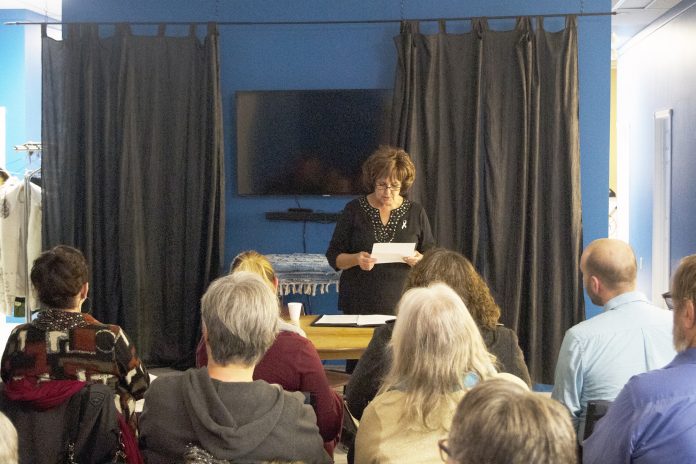
Three local women have been named to leadership positions of a national advocacy organization.
The National Council of Women of Canada (NCWC); an organization advocating for the welfare of women, the family and the community; named Prince Albert residents to its president and two vice-president roles during meetings in Winnipeg this weekend.
Patricia Leson, the president of the Prince Albert Council of Women, was named the NCWC president, while local nurse practitioner Brenda Mishak and lawyer Randi Arnot were named vice-presidents. They will serve two-year terms.
Leson is a retired educator and has served on the health region board and the housing authority board. She currently sits as a member of the University of Regina* Senate. She is the first NCWC president to hail from Prince Albert in the organization’s 126-year history.
“The Prince Albert Council of Women congratulates Patricia on becoming national President,” said Rose Rothenburger, a fellow Prince Albert Council of Women member on behalf of that organization.
“We know Patricia will do an excellent job and we are pleased that women across Canada have placed their trust in her leadership”.
Reached by phone Tuesday, Leson said she was “honoured” to be chosen as the national president.
“It’s quite a privilege. It’s wonderful,” she said.
Leson added that she is “thrilled” to see the pair of vice-presidents also come from the Prince Albert chapter.
“It just shows the commitment of women in Prince Albert to make a better Canada and a better world.”
Mishak agreed that having three national leaders come from the city is a testament to the local club.
“The Prince Albert Council of Women has been strong for a number of years. We’ve received community support and I think we believe quite strongly in advocacy for women and communities. We want to keep that advocacy going at the national level as well.”
Mishak’s portfolio focuses mostly on concerns around health. There are many changes impacting the health of Canadians at the national level, she explained, including the legalization of marijuana and the medical assistance in dying legislation, concerns surrounding adequate access to health providers, preventing youth homelessness and ensuring equitable care for seniors and their access to medication and pension. She also stressed the importance of bringing the recommendations of the National Inquiry into Missing and Murdered Indigenous Women and Girls to life.
That inquiry, Leson said, is the focus of the NCWC going forward.
“All across Canada, women in their particular councils will be looking at reconciliation. We will be looking at the terms that are included in the report,” she said.
“There are 261 recommendations and we’ll be pushing for them. We really feel we have to honour those people who came forward with their stories of sorrow and grief, and we have to put a stop to this. From coast to coast, that will be our common program, our common theme with how we’re going to work.”
While that will be the organization’s common theme, they are also still advocating for causes that served as an inspiration to the group for over a century.
“We’ve been in existence for 126 years and we are still working for one thing that started 126 years ago — equal pay for women,” she said.
That’s why, Mishak said, it’s important for people to keep fighting for change.
“While we have improved, there is constant room for growth for society in general,” she said. We’ve been active for 126 years and there are many social justice programs that have come forward from that. I really want young people to realize that all of the advancements in our society are made by strong men and women who have advocated for them. It’s not a time to become complacent and say we’ve made it.”
She encouraged people to join the Council of Women or other service clubs that seek to make their communities better.
Leson agreed.
“The more people press for change, the more apt we are to find it and be certain that it happens,” she said.
‘This isn’t just something our councils need to take on, it’s people everywhere. There’s lots to do We’ve got the courage, we’ve got the enthusiasm — we can do it.”
*This is a corrected story. Patricia Leson serves on the University of Regina senate, not the University of Saskatchewan senate. The Herald regrets the error.

